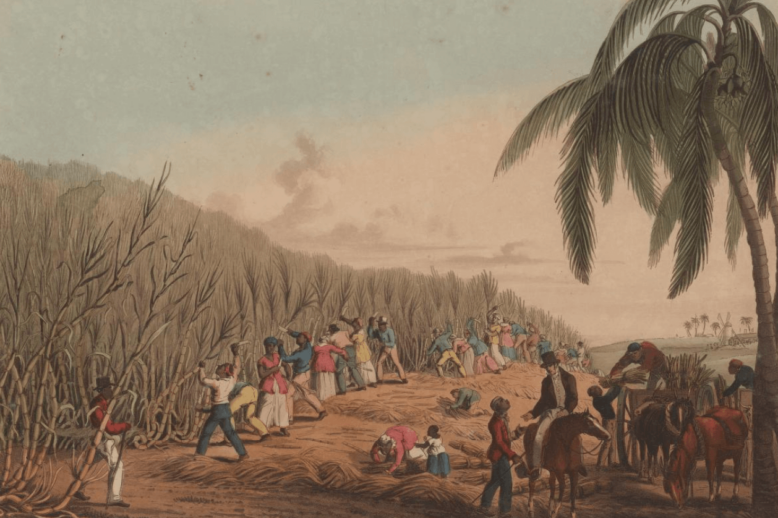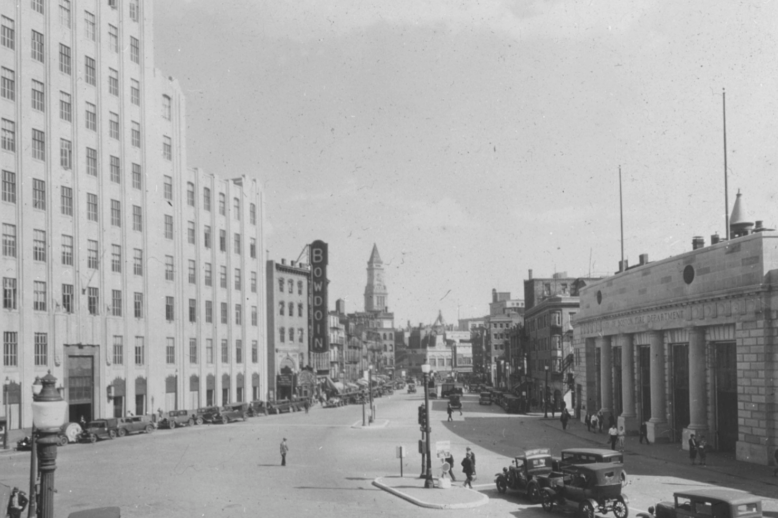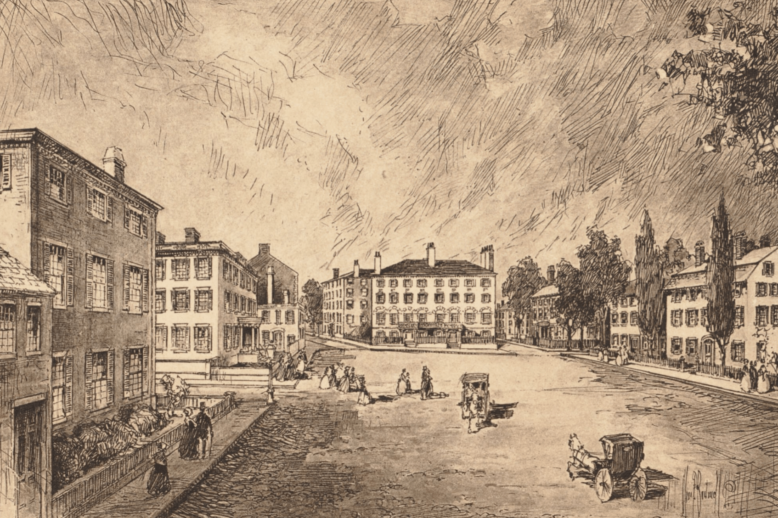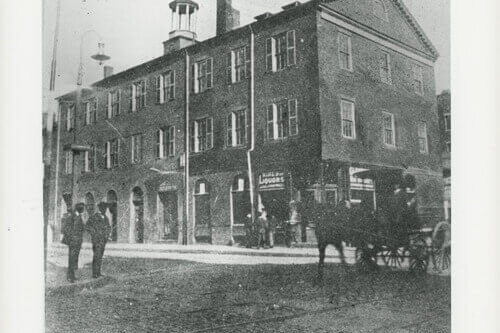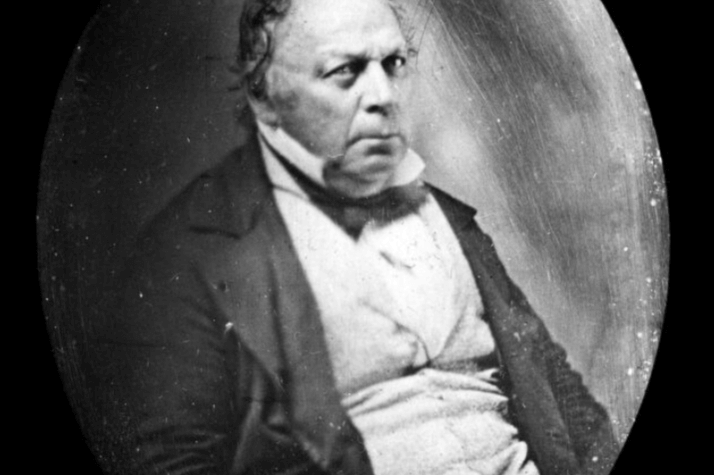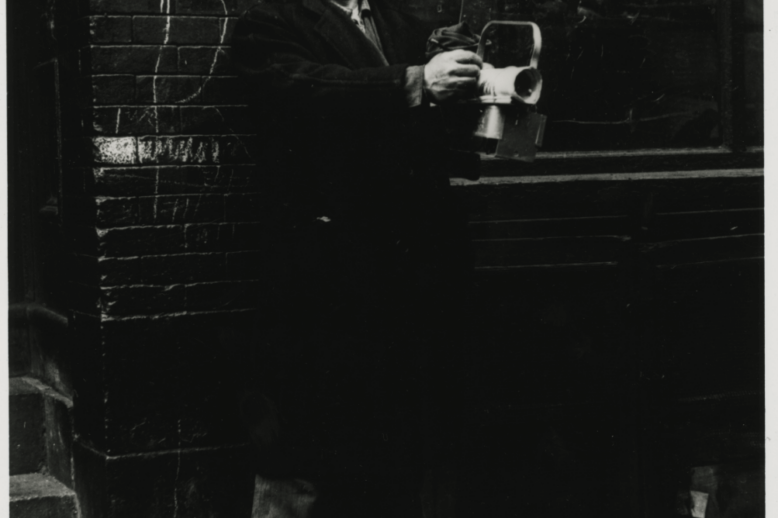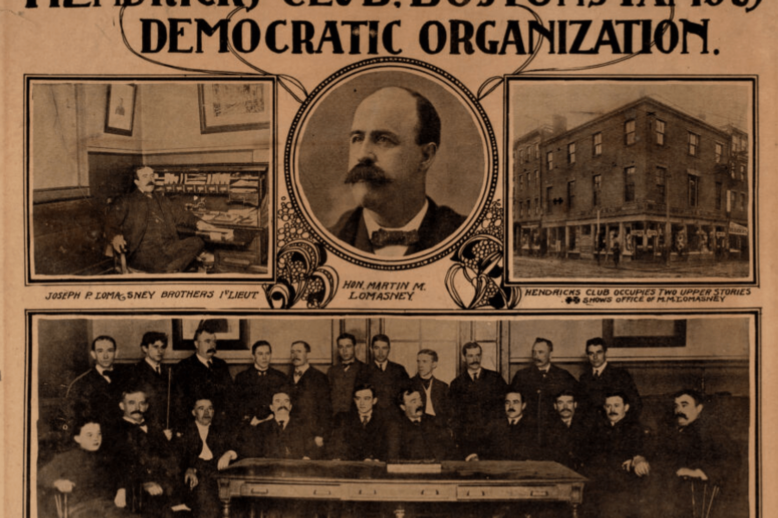Era
Organizational category for historical articles
In 1625, the Shawmut Peninsula, home to modern day Boston, was known in the Algonquian language as “Mushauwomuk” (“the boat landing place”), and sat within the territory of the Massachuset nation, serving as a seasonal base for fishing and light farming. Within ten years, the Massachuset people lost the Shawmut to English settlers who claimed and occupied it as their land of promise.
Boston’s rapid development in the seventeenth century would not have been possible without the labor of enslaved Africans, which allowed the construction of an integrated political economy linked primarily to markets of the West Indies. Boston served as a center of the slave trade and port of entry for enslaved Africans. By the early 1700s, the New England Colonies were deeply involved in an economic alliance with the sugar-producing West Indies, driven by the abduction and enslavement of Africans and the trade of raw materials, molasses, and rum.
Bowdoin Square has gone through many phases, including rapid development, growing population, changing fortunes, urban renewal, and attempts at revitalization. Today the name survives mainly in the name of an MBTA station, but examination of Bowdoin Square provides insight into two and a half centuries of Boston history. This article, the second part of two, covers the history of the square in the twentieth and twenty-first centuries.
Bowdoin Square has gone through many phases, including rapid development, growing population, changing fortunes, urban renewal, and attempts at revitalization. Today the name survives mainly in the name of an MBTA station, but examination of Bowdoin Square provides insight into two and a half centuries of Boston history. This article, the first part of two, covers the history of the square in the eighteenth and nineteenth centuries.
Samuel Parkman (1751-1824) and George Parkman (1790-1849) both left an enduring mark on the West End. Samuel was a Bowdoin Square real estate magnate and Charles Bulfinch patron. Like his father, George also worked in real estate, and used his fortune to donate land on North Grove Street for the site of Harvard Medical College – the building he would later be murdered in.
Architect Alexander Parris (1780-1852) designed some of Boston’s most enduring neoclassical architectural landmarks, from Quincy Market to St. Paul’s Church. Parris also played a role in three notable projects in the West End: Massachusetts General Hospital’s Bulfinch Building, the Leverett Street Jail, and St. Joseph’s Catholic Church.
Abraham “Al” Tabachnik (sometimes spelled Tabachnick, Tabatchnik, or Tabarchnik) was a Russian immigrant, known both for his eccentricities and powerful voice. From the early 1920s to the early 1960s, he roamed the West End’s streets, filling them with music. Recollections of Tabachnik, found throughout West End oral histories and the West Ender Newsletter, illustrate the impact of the West End’s tight-knit community on him, and his impact on the community.
After Martin Lomasney (1859-1933), the legendary “Mahatma of Boston,” made John Ignatius Fitzgerald (1882-1966) a precinct captain at age 18, Fitzgerald became Lomasney’s right-hand man. Their political relationship provides a window into the inner workings of early-twentieth-century ward politics in the West End.



